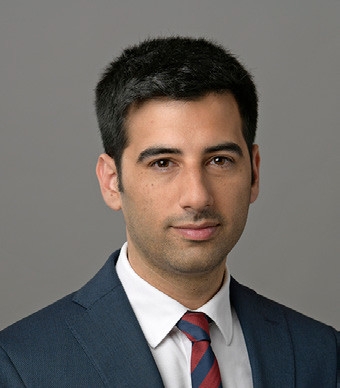Estate Planning for International Families in Israel
Protecting Your Assets Across Borders
As the world becomes more interconnected, families in Israel often find themselves spread across different countries, facing unique challenges when it comes to estate planning. For families who made aliyah, and international families in Israel, navigating the complexities of cross-border inheritances and taxation is crucial to ensuring the seamless transfer of assets. In this article, we will explore key considerations and offer practical insights to help you and your family protect your wealth across borders.
Cross Border Inheritances
One of the primary challenges for international families in Israel is dealing with assets scattered across different jurisdictions. Inheritance laws can vary significantly from one country to another, adding a layer of complexity to the estate planning process.
To address this, it's essential to identify all relevant jurisdictions and understand their respective rules on inheritance. Engaging with legal professionals who specialize in international estate planning can provide valuable insights into the specific requirements and potential pitfalls associated with cross-border inheritances.
Taxation Considerations
Navigating the tax implications of inheritance is a critical aspect of estate planning. Currently, Israel does not have inheritance tax. Yet, there are many other considerations to bear in mind, including inheritance tax abroad. For instance, in certain cases, inheritance tax in US or UK can go up to 40%; in France it can reach up to 45%, and in Belgium it can go as high as 80%!
The taxation of inherited assets depends on various factors, including the relationship between the deceased and the beneficiary, the type of assets involved, and their value.
Families who made aliyah, international families, must be aware of the potential tax liabilities associated with the transfer of assets. Seeking professional advice to optimize the estate for tax efficiency can help minimize the impact on beneficiaries. This may involve exploring tax exemptions, deductions, and other strategies tailored to the specific circumstances of the family.
Transfer of Assets
Ensuring a smooth transfer of assets requires careful planning and attention to detail. International English-speaking families can take several practical steps to facilitate the process:
a) Comprehensive Documentation:- Maintain detailed records of all assets, including real estate, financial accounts, and personal belongings.
- Clearly document the intentions of the deceased regarding the distribution of assets.
- Work with professionals who specialize in international estate planning and taxation.
- Seek guidance on the legal and tax implications of the estate to avoid potential disputes and setbacks.
- Understand the financial situation and preferences of beneficiaries.
- Tailor the estate plan to meet the unique needs and circumstances of each one of the beneficiaries.
- Estate planning is not a one-time event; it requires periodic reviews and updates.
- Stay informed about changes in tax laws and regulations that may affect the estate plan.
Conclusion
Estate planning for families who made aliyah, international families in Israel, involves a delicate balance between legal, financial, and even emotional considerations. I frequently find myself advising families in delicate matters combining legal, financial and emotional aspects all together. By addressing the challenges of cross-border inheritances, understanding the taxation implications, and implementing practical strategies for a smooth asset transfer, families can safeguard their wealth for future generations.
In a world where borders are increasingly fluid, unexpected challenges such as global pandemic or war are our reality, a well-crafted estate plan provides a solid foundation for preserving family legacies. Taking proactive steps today can offer peace of mind (to a certain extent) and ensure that (at least) the transfer of assets across borders is as seamless as possible. Engaging with experienced professionals who understand the nuances of international estate planning is an investment in the future prosperity of your family.
Adv. Assaf Hasson is a Tax and Private Client Lawyer, and Private Wealth Advisor. He is a board member of the ESRA Executive and of the Finance Committee.
Email: This email address is being protected from spambots. You need JavaScript enabled to view it..








Comments